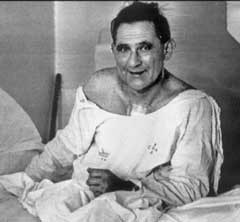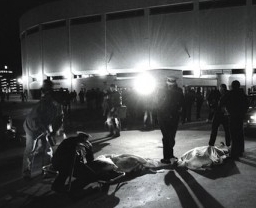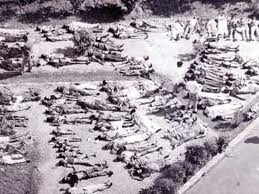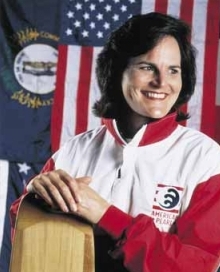1818 – Illinois became the 21st state to enter the United States of America.
1894 – Author Robert Louis Stevenson (Treasure Island, Kidnapped, Strange Case of Dr, Jekyll and Mr. Hyde) died of a cerebral hemorrhage at the age of 44.

1947 – A Streetcar Named Desire by Tennessee Williams opened at the Ethel Barrymore Theatre on Broadway. The show would run for more than 800 performances, turning Marlon Brando into an overnight star. Jessica Tandy won a Tony Award for her performance, and Williams was awarded the Pulitzer Prize for Drama.

1960 – Camelot opened at the Majestic Theatre on Broadway. Richard Burton and Julie Andrews played the leading roles in the musical written by Lerner and Loewe. The show had a run of 873 performances.

1967 – 53-year-old Lewis Washkansky received the first human heart transplant at Groote Schuur Hospital in Cape Town, South Africa. Washkansky, a South African grocer dying from chronic heart disease, received the transplant from Denise Darvall, a 25-year-old woman who was fatally injured in a car accident. Surgeon Christiaan Barnard, who trained at the University of Cape Town and in the United States, performed the revolutionary medical operation.
Eighteen days after the operation, Washkansky died of double pneumonia. His new heart, however, beat strongly to the end.

1979 – In Cincinnati, 11 fans were suffocated in a crush for seats on the concourse outside Riverfront Coliseum before a concert by The Who. The concert was a sellout, with 18,348 tickets sold. The majority of these, 14,770, were for unassigned general admission tickets that included an arrangement for festival seating (first-come, first-served).
Before the show, as a sizeable crowd began to gather at one of the entryways, The Who decided to perform a late sound check. Some members of the crowd heard this and mistakenly believed that the concert was starting. In the confusion some people in the back of the crowd began pushing toward the front, resulting in a mass rush toward the entrance. This caused many people to get trampled while some suffered more serious injuries. Eleven concertgoers were unable to escape the throng of people pushing toward them and were killed by asphyxiation. There were a total of twenty-six other injuries.

1984 – In the early morning hours, one of the worst industrial disasters in history begins when a pesticide plant located in the densely populated region of Bhopal in central India leaked a highly toxic cloud of methyl isocyanate into the air. Of the estimated one million people living in Bhopal at the time, 2,000 were killed immediately, at least 600,000 were injured, and at least 6,000 have died since.
1991 – After months of bruising political attacks in which he had become the symbol of the increasing disarray in President George H.W. Bush’s domestic policy team, White House Chief of Staff John Sununu resigned (although it later became clear he was forced out).
1997 – In Ottawa, Canada, representatives from 121 countries signed the Ottawa Treaty, prohibiting manufacture and deployment of anti-personnel landmines. The United States, People’s Republic of China, and Russia did not sign the treaty.

1999 – Actress Madeline Kahn (Young Frankenstein, High Anxiety, Nixon and a two-time Academy Award nominee: Blazing Saddles and Paper Moon) died of ovarian cancer at the age of 57.
1999 – NASA lost radio contact with the Mars Polar Lander moments before the spacecraft entered the Martian atmosphere.

1999 – Tori Murden became the first woman and the first American to row solo across the Atlantic Ocean. After rowing 2,962 miles in 81 days, Murden eased her 23-foot boat, American Pearl, to the dock at Fort-du-Bas on the French Carribean island of Guadeloupe.
Compiled by Ray Lemire ©2014 RayLemire.com. All Rights Reserved.
You may not, under any circumstances, reproduce, record, publish, republish, post, transmit, publicly display, publicly exhibit or distribute any articles or photographs on RayLemire.com without obtaining the express written consent of the Operator.